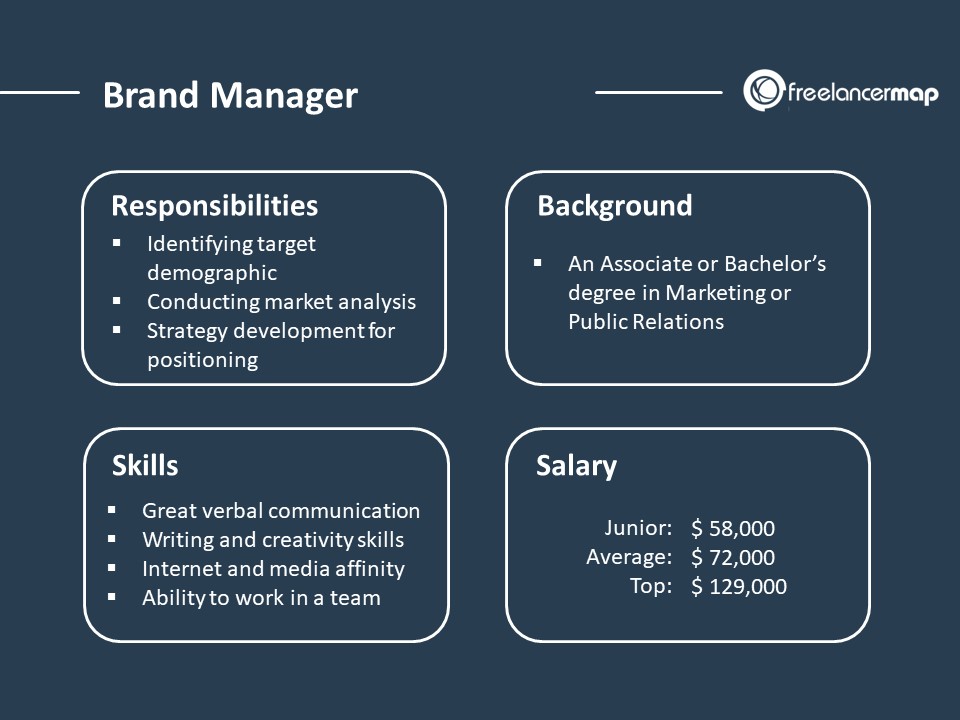
A generalist manages a range of HR tasks. This includes balancing the needs and wants of employees with those of the company. They need to be up-to-date with current HR regulations. But, this role does not come without its challenges. We will be looking at the essential aspects of the job and the requirements for anyone interested in this career. We will also examine the education and salary requirements as well as offer some career options for those interested in entering this field.
Job description
You may have a different work day depending on the industry you are working in as an HR Generalist. It also depends on the season and where you live. A cup of coffee will get you started on your day. Then, you'll start your daily tasks. You might need to coordinate changes within employee benefit programs, participate in meetings, or write documentation. You might also be responsible at employee orientation.
The Generalist's other duties include managing performance appraisals. This is a recurring event where an HR professional and the manager sit down to evaluate the performance of an employee. This is a shared responsibility between the HR department and the business. Many important decisions about an employee’s future will be made on the basis of these evaluations. Specialists are available for larger organizations. But HR Generalists should be knowledgeable about the business functions involved in managing performance appraisals.

Education requirements
The educational requirements for generalist HR positions can vary depending on the company or industry. Although a high degree of education may be required, employers prefer to see candidates with work experience. In addition to HR experience, candidates should be aware that many fields of study offer transferable skills. An MBA or Master's degree in human resource management may be beneficial for someone with experience in finance, accounting, law, or marketing.
As Human Resources Generalists, they are expected be analytical and to have an understanding of key HR metrics. They might need to train others in new systems. They should also be comfortable with digital tools. This includes both pre-assessment and recruitment technologies. They should also be skilled in online collaboration and communication platforms. This will allow them be effective advisors to their customers. A HR Generalist must also have the ability to manage confidential information. This is critical for a business.
Salary
A generalist in human resource is paid a salary that varies depending on where you live and what industry you work. These professionals supervise the day-to-day activities of a HR office. They manage employee evaluations, and create and implement HR policies. They must be multi-taskers who can handle multiple projects at once. They may also be responsible for recruiting, firing, or maintaining organizational activities. This makes them indispensable to any business, including small companies.
Generalists in HR need to have a bachelor's degree or equivalent in human resources, and some experience. Many generalists also complete internships, which give them a feel for the job and the duties. The salary for HR generalists varies depending on the industry and the responsibility. Bachelor's degrees are more common than those with greater experience. To be eligible for a good pay, HR generalists must have at least 2 years of experience.

Career path
As a generalist in human resource (HR), you can get more experience. The HR generalist role allows you to choose a variety of responsibilities within the HR department and is a more flexible position than a specialist. You can work in many HR areas, but generalists have the potential to move up to a higher-ranking position, such a human resources director. An HR generalist requires a high level of organization and multi-tasking to excel in their job.
If you're interested in working in HR, a generalist role may be the best option for you. Generalists are required to be in close contact with employees and will be responsible for a wide range of tasks. For larger companies, a team may be needed to solve specific problems and give more personal attention to employees. It's possible that you will work in an office environment. But, a generalist role may allow you the freedom to live the jet set lifestyle. Traveling to college campuses and job fairs is a common way you'll be able to attract candidates.
FAQ
What is TQM and how can it help you?
When manufacturing companies realized that price was not enough to compete, the industrial revolution brought about the quality movement. To remain competitive, they had to improve quality as well as efficiency.
To address this need for improvement management created Total Quality Management (TQM) which aimed to improve all aspects of an organization's performance. It involved continuous improvement, employee participation, and customer satisfaction.
What is Kaizen?
Kaizen is a Japanese term for "continuous improvement." It encourages employees constantly to look for ways that they can improve their work environment.
Kaizen is built on the belief that everyone should be able do their jobs well.
What are the five management process?
Each business has five stages: planning, execution and monitoring.
Planning is about setting goals for your future. This includes setting goals for the future and defining what you want.
Execution happens when you actually do the plan. They must be followed by all parties.
Monitoring is the act of monitoring your progress towards achieving your targets. Monitoring should include regular reviews of performance against goals and budgets.
Reviews take place at the end of each year. They provide an opportunity to assess whether everything went well during the year. If not, changes may be made to improve the performance next time around.
Following the annual review, evaluation is done. It helps to determine what worked and what didn’t. It also provides feedback on how well people performed.
How do we build a culture that is successful in our company?
A company culture that values and respects its employees is a successful one.
It's based on three main principles:
-
Everyone has something valuable to contribute
-
People are treated fairly
-
It is possible to have mutual respect between groups and individuals
These values reflect in how people behave. They will treat others with kindness and consideration.
They will listen to other people's opinions respectfully.
They encourage others to express their feelings and ideas.
The company culture promotes collaboration and open communication.
People feel free to express their views openly without fear of reprisal.
They are aware that mistakes can be accepted if they are treated honestly.
Finally, the company culture promotes honesty and integrity.
Everyone knows that they must always tell truth.
Everyone knows that there are rules and regulations that apply to them.
No one is entitled to any special treatment or favors.
What are the steps involved in making a decision in management?
Managers have to make complex decisions. It involves many factors, including but not limited to analysis, strategy, planning, implementation, measurement, evaluation, feedback, etc.
When managing people, the most important thing to remember is that they are just human beings like you and make mistakes. You can always improve your performance, provided you are willing to make the effort.
We explain in this video how the Management decision-making process works. We will explain the importance of different types decisions and how every manager can make them. These topics are covered in this course:
How does Six Sigma function?
Six Sigma uses statistics to measure problems, find root causes, fix them, and learn from past mistakes.
First, identify the problem.
The data is then analyzed and collected to identify trends.
The problem is then rectified.
Final analysis of data is done to determine if the problem has been solved.
This continues until you solve the problem.
What are the main management skills?
Business owners need to have management skills, no matter how small or large they may be. They include the ability to manage people, finances, resources, time, and space, as well as other factors.
Management Skills are also needed when you're setting goals and objectives, planning strategies, leading teams, motivating employees, resolving problems, creating policies and procedures, and managing change.
As you can see, there's no end to the list of managerial duties!
Statistics
- The profession is expected to grow 7% by 2028, a bit faster than the national average. (wgu.edu)
- UpCounsel accepts only the top 5 percent of lawyers on its site. (upcounsel.com)
- As of 2020, personal bankers or tellers make an average of $32,620 per year, according to the BLS. (wgu.edu)
- This field is expected to grow about 7% by 2028, a bit faster than the national average for job growth. (wgu.edu)
- 100% of the courses are offered online, and no campus visits are required — a big time-saver for you. (online.uc.edu)
External Links
How To
How do I get my Six Sigma License?
Six Sigma is an effective quality management tool that can improve processes and increase productivity. It's a system that allows companies to get consistent results from operations. The name "Sigmas" comes from the Greek words "sigmas", meaning "six". Motorola created this process in 1986. Motorola recognized that they had to standardize their manufacturing processes to produce faster and more affordable products. There were many people doing the work and they had difficulty achieving consistency. To resolve this issue, they used statistical tools like Pareto analysis and control charts. These techniques would be applied to every aspect of the operation. After applying the technique, they could make improvements wherever there was potential. The Six Sigma certification process involves three major steps. Find out if you are qualified. You'll want to take some classes and pass them before you start taking any tests. Once you pass those classes, the test will begin. You will want to remember everything you learned in the class. Next, you'll be ready for the test. If you pass, you'll get certified. Final, your certifications can be added to you resume.